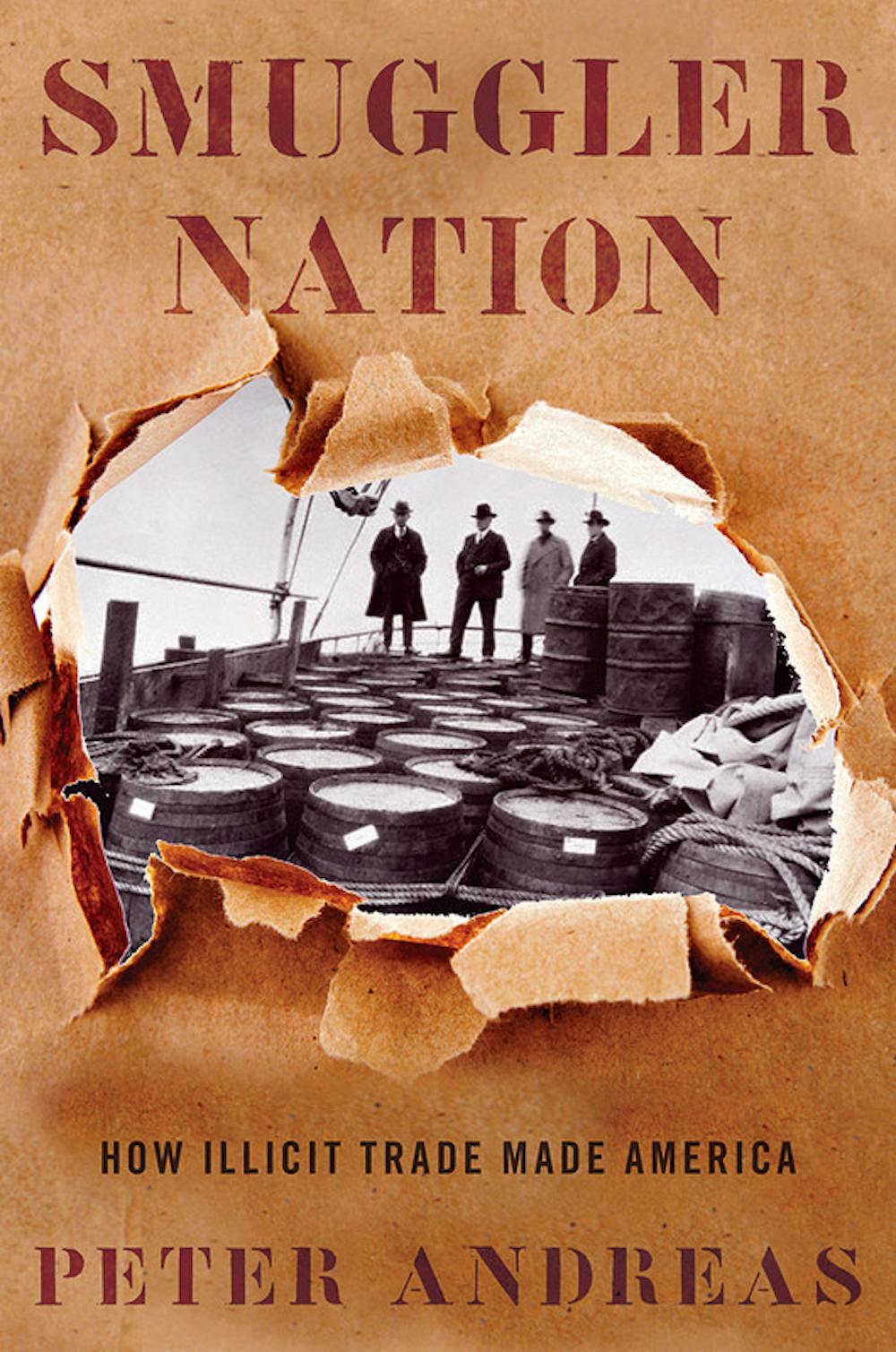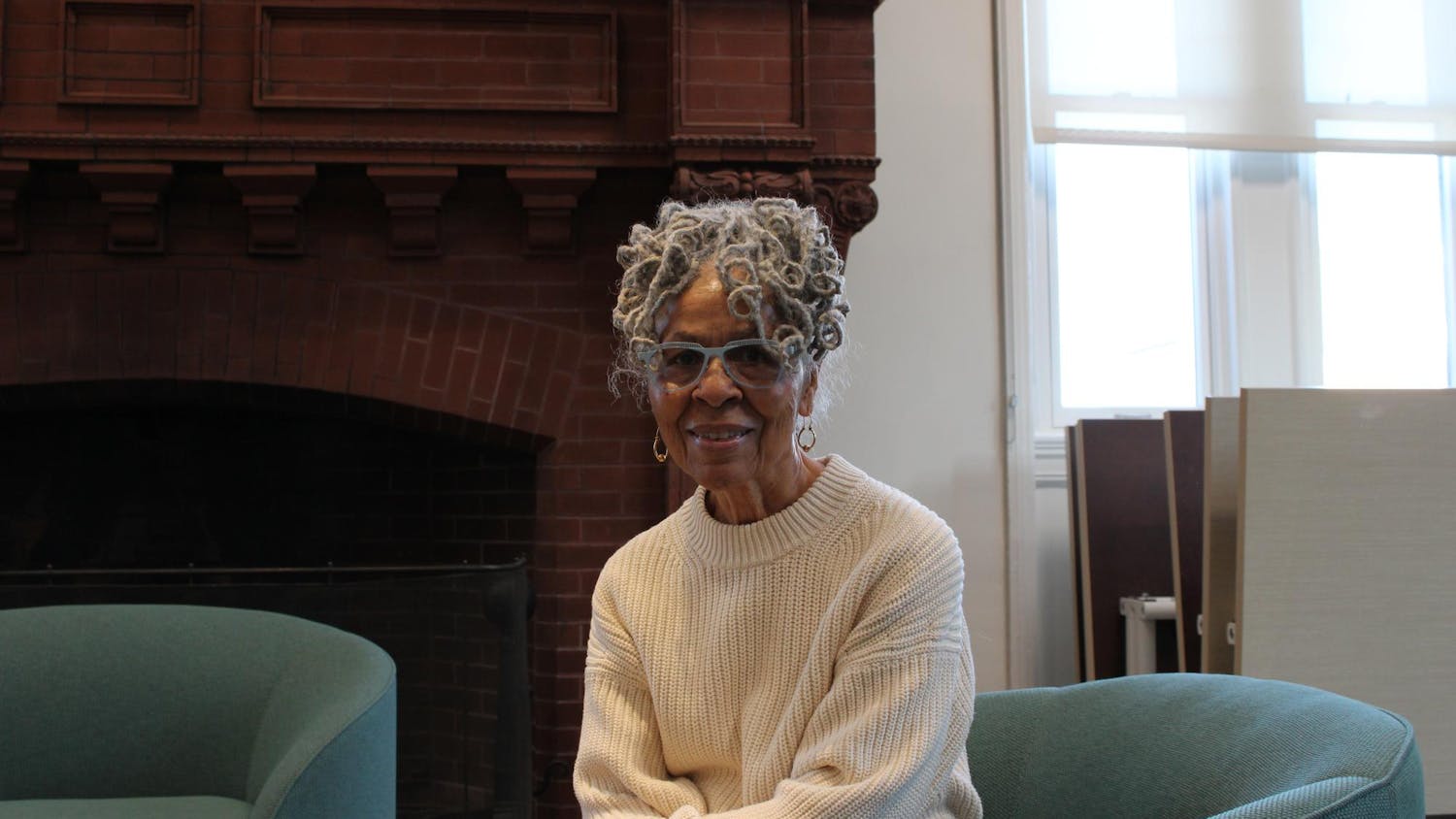Often overlooked pieces of American history — the black market condom trade, the emergence of the porn industry and smuggling jewelry from Europe to the United States using cadavers — are brought to the forefront in a book by Peter Andreas, professor of political science and interim director of the Watson Institute for International Studies.
Published last month, “Smuggler Nation: How Illicit Trade Made America” traces the narrative of illicit trade activity in the U. S. spanning three centuries, Andreas said.
The Watson Institute for International Studies will sponsor a panel discussion on the book in the Joukowsky Forum today at 5 p.m.
The book hits close to home for readers on College Hill when Andreas describes John Brown — a member of the University’s founding family — smuggling molasses in the colonial years and gunpowder during the American Revolution, and later engaging in illicit slave trading.
“He very arrogantly defied anti-slave laws and helped other slave traffickers evade the law,” Andreas said.
John Brown’s brother, Moses Brown — a Quaker, pacifist and abolitionist — was involved in illicit acquisition of machinery from England during the early Industrial Revolution, Andreas said. Moses Brown hired Samuel Slater, who smuggled himself and designs of British textile technology out of England, violating strict British emigration laws, Andreas said.
Andreas’ interest in the topic of smuggling emerged from a gap he identified in the American historical narrative and in contemporary policy debates in Washington, he said. “The policy debates on issues of transnational crime are pretty much devoid of all historical perspective,” he said. “They act as if it’s an entirely new and unprecedented threat.”
A sort of “historical amnesia” grips Washington policymakers today, resulting in fingerpointing and limited self-reflection, Andreas said. To fill this sinkhole in the collective memory, Andreas decided to trace illicit trade throughout American history.
The research and writing process took Andreas five years. “I would basically mine the existing literature as well as some primary sources” including newspaper articles and documents, hunting for “nuggets of information,” he said. “A lot of it is buried,” adding that in dealing with an underground subject such as smuggling, “the data by definition is not precise.”
Andreas found a rich history of illicit trade in America, ranging from George Washington’s reliance on smuggled supplies from Europe during the American Revolution to massive slave trafficking after the slave import ban of 1808. Some women specialized in smuggling items inside their clothing, which worked until customs hired women to conduct body searches, Andreas said.
“It’s not just a story of law evasion. It’s also a story of law enforcement,” Andreas said. “It’s about the interaction between smugglers and anti-smugglers,” and how that interaction shaped the federal government and brought the United States to a time in which it has the largest prison population in the world, thanks partly to the War on Drugs, he said.
“The book departs in a very helpful way from the standard narrative of U.S. history, which tends to focus on the idea of the rule of law as at the center of our founding and our identity,” wrote Catherine Lutz, professor of anthropology and international studies, in an email to The Herald. Lutz is also a panelist in today’s discussion.
Andreas said he uncovered an essential irony during his research.
“A country that was born and grew up through smuggling is now the world superpower when it comes to anti-smuggling,” Andreas said. “Basically the U.S. is saying, do as I say, not as I did.”
Though “Smuggler Nation” is fresh off the press, Andreas is already considering his next projects.
“There’s always unanswered questions, especially in this area where sometimes you feel you are just at the tip of the iceberg,” he said. He is considering expanding the scope of his book and writing “Smuggler World,” he said, adding that diving into the drug story more deeply also interests him.

ADVERTISEMENT




